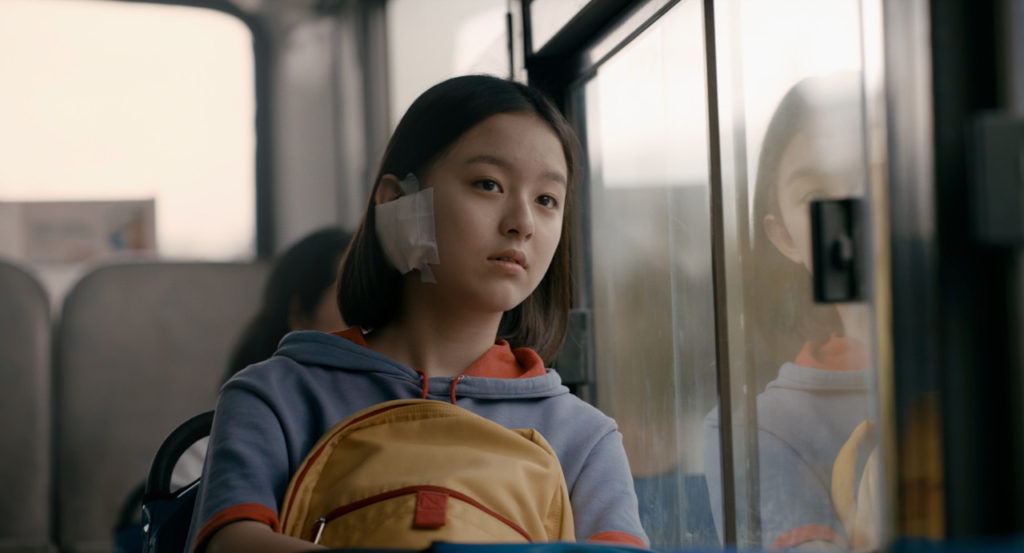Bora Kim is a Korean filmmaker with an MFA in film directing from Columbia. Her debut feature, “House of Hummingbird,” won the Grand Prix for Best Feature Film at the 69th Berlin International Film Festival Generation 14plus and won NETPAC and Audience awards at the 23rd Busan International Film Festival.
“House of Hummingbird” will premiere at the 2019 Tribeca Film Festival on April 27.
W&H: Describe the film for us in your own words.
BK: I’d like to quote Youngji, one of the film’s characters, to describe it: “What’s the right way to live? Some days I feel like I know, but I really don’t know for sure. I just know that when bad things happen, good things happen too.”
W&H: What drew you to this story?
BK: It all started from a nightmare I had while I was doing my MFA in New York. At the time I was living in a foreign country for the first time while learning a new language and working on a master’s degree. During this period, I felt very unstable and started having this dream about going back to middle school again. It felt like a total nightmare. Every time I woke from the nightmare, I felt so relieved that it was only a dream.
The unease I was feeling at grad school was bringing back my past memories and traumas from middle school—a period during which I was most unstable. I realized there was something going on in that period of my life, and I started to dig into the memories.
W&H: What do you want people to think about when they are leaving the theater?
BK: I want them to think about their own past and present and inspire them to write something that evening, or have a deep conversation with their friends. Or just take a stroll with the feelings that they can’t describe.
W&H: What was the biggest challenge in making the film?
B: Getting funding and finding the main actress. Also, the anxiety and fear about the possibility of not being able to make this film. It’s good to have close filmmaker friends who already have gone through this process to let you know that you’re not insane to feel that way.
W&H: How did you get your film funded? Share some insights into how you got the film made.
BK: “House of Hummingbird” was funded by the Korean Film Council, Seoul Film Commission, and Seongnam Art Council. Those three funds are the biggest indie film funds in Korea, and I was lucky to get all [of their support]. Korean Film Council even paid for me and main cast [to fly] to Berlin when the film was shown at Berlinale—it supports indie filmmakers in various ways.
Also, I received the First Prize cash award money from the Seoul International Women’s Film Festival by pitching this project. It was good to get prize money but also a great chance to learn about how to pitch your film. To pitch well, you need to really figure out what your film is about and how to convey the concept in your own creative and concrete language. I highly recommend that others join the pitching event.
After filming, I got a post-production grant from the Asian Cinema Fund from the Busan International Film Festival and Sundance Institute. Lastly, it was chosen as one of ten narrative films by the IFP lab, which helped us learn so much about post-production and allowed us to get to know people from industry. IFP also supported our screening at the European Film Market at Berlinale.
All these funding processes took place from 2014 until 2018. Yes, quite a long journey. There were lots of rejections, of course, and I learned to be strong.
W&H: What inspired you to become a filmmaker?
BK: Cinema takes me to another world. That world is authentic, real, and welcoming. Cinema doesn’t belong to the winner but to the loser/loner. The blissful loser. I like that world.
W&H: What’s the best and worst advice you’ve received?
BK: Best advice: “To do things right, first you need love, then technique,” by Antoni Gaudi
Worst advice: “Why focus on a middle school girl? Make her into high school girl so that you can cast a big named actress. Why 1994? Make it set in the present. It will be difficult to make a period film at that budget.”
W&H: What advice do you have for other female directors?
BK: Don’t make yourself small, and don’t be afraid of your success. You’re not afraid of failure but of success and your tremendous being.
W&H: Name your favorite woman-directed film and why.
BK:” “Hotel Monterey” by Chantal Akerman. The film showed warmth and a different view of the setting, as if the hotel is alive. After you watch the film, you feel like you know and have affection toward a place you’ve never been.
W&H: It’s been a little over a year since the reckoning in Hollywood and the global film industry began. What differences have you noticed since the #MeToo and #TimesUp movements launched?
BK: Male filmmakers are trying to be more aware of what they say. I’m very glad not to hear their unfunny jokes anymore.
More importantly, festivals are trying to screen more films by female directors, so now we can watch more good films by women directors. Being able to watch more women-directed films is good for our society.







